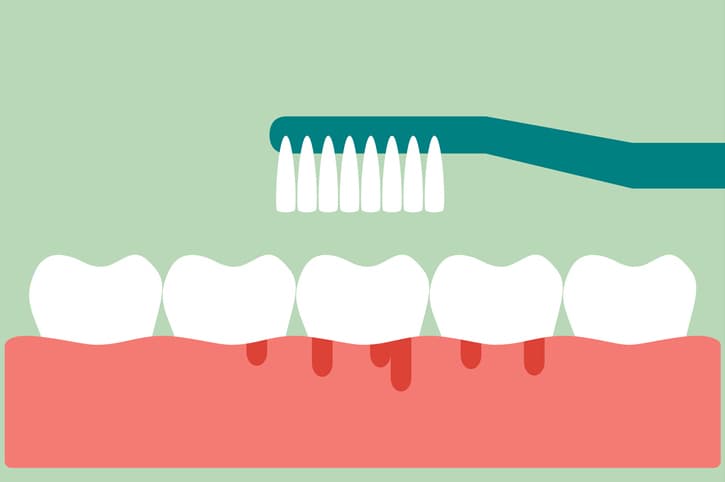Gingivitis
Gingivitis can lead to periodontitis if left untreated. Periodontitis is much more serious. The bacteria produced by the plaque irritate the gums, triggering the immune system to produce powerful bacteria-fighting elements that attack the infection. An unfortunate consequence is that these elements inadvertently destroy bone and tissue responsible for supporting the teeth. As tissue is broken down, spaces begin to form separating the gums from the teeth. These spaces can become infected and deepen, further destroying gum tissue and bone. Eventually, when there is an insufficient amount of bone left to support your teeth, they begin to feel loose and may have to be removed.
The Symptoms
Do you have gingivitis? Most people are unaware that they have this gum condition because it is usually painless, but there are numerous symptoms. According to the Mayo Clinic, the most common symptoms are swollen gums, soft puffy gums, receding gums, occasionally tender gums, gums that bleed easily when flossing or brushing, change in gum color from pink to red and bad breath.
Steps to Prevent
So what should you do to prevent gum disease? The most important step is to visit your dental health professional on a regular basis. Thorough professional cleaning and checkup followed by good home care are usually enough to reverse gingivitis. Good home care involves brushing your teeth twice per day and use an interdental aid such as floss at least daily. Do not forget to brush your tongue. Your mouth should be at its cleanest right before going to bed. There is no disruption to the growing bacteria in your mouth while sleeping, therefore, this is the time that bacteria can do the most damage.
If you are unsure how to clean your mouth properly, ask your dental health professional to show you the correct technique. You should go to your dental maintenance visits twice per year, although only your dental health professional can tell you how often you should have your checkup and maintenance based on your needs. If you notice any of the symptoms mentioned above, do not wait for your regular checkup since untreated gingivitis can advance to the more serious, irreversible and destructive stage of gum disease, periodontitis.
